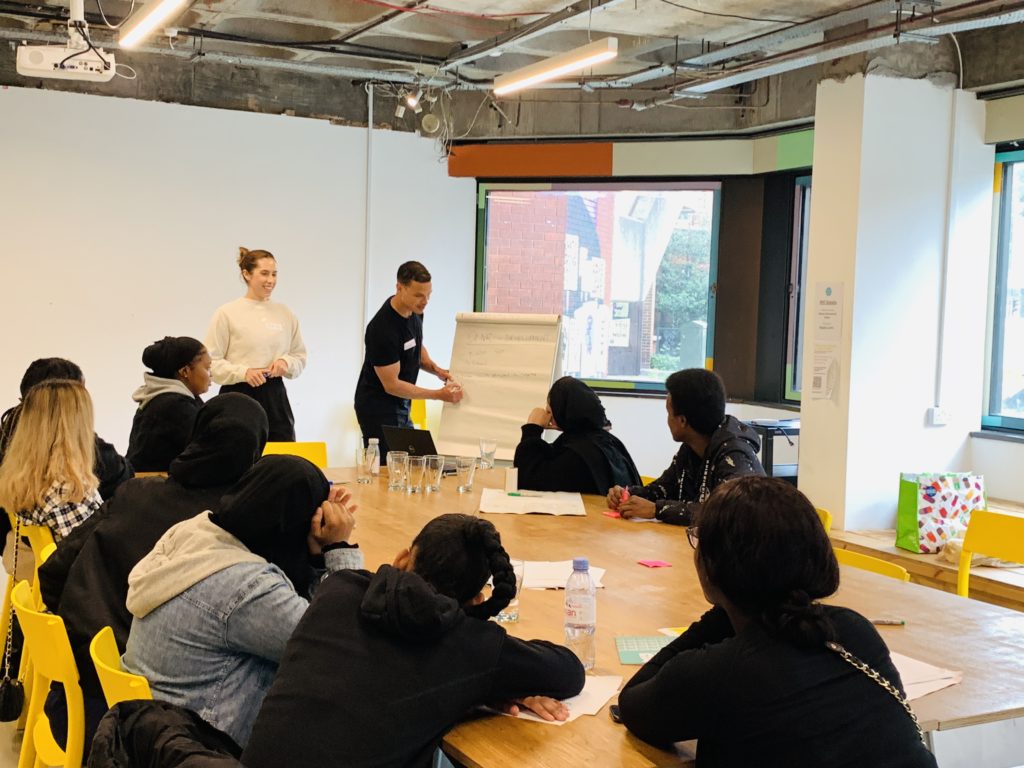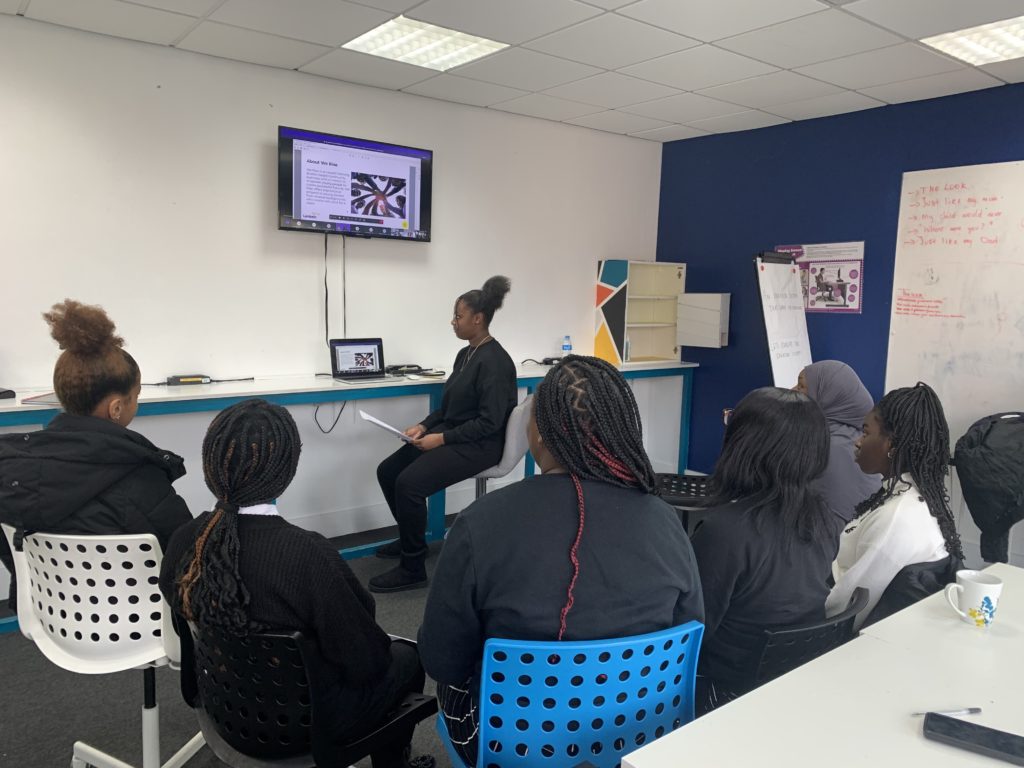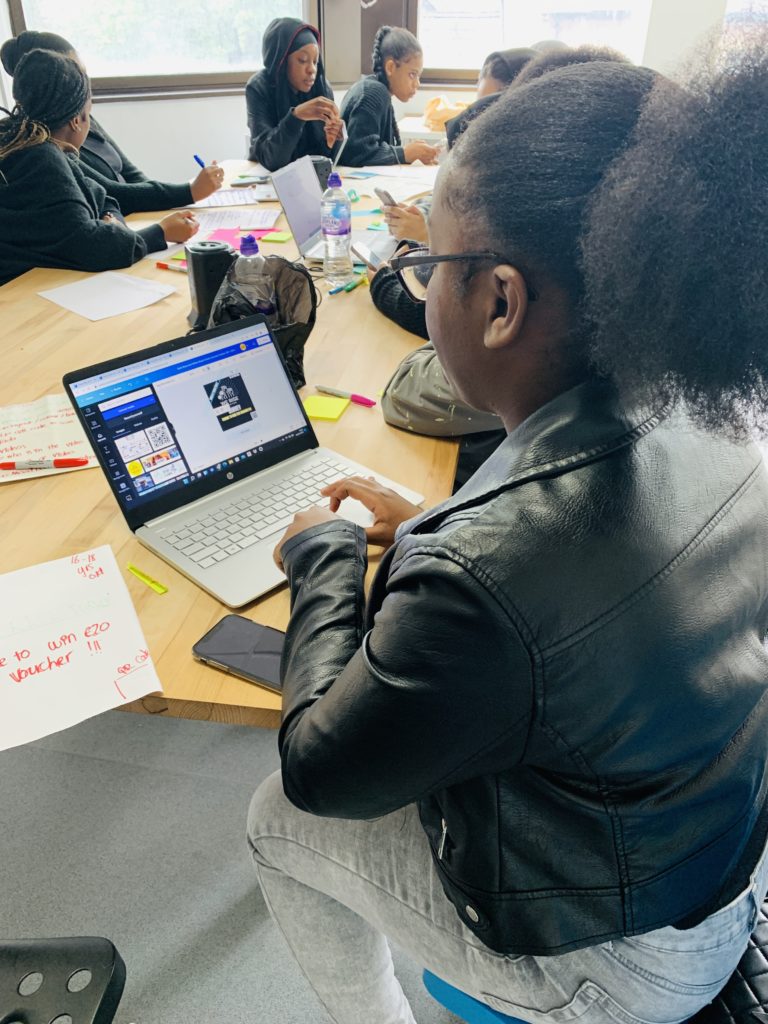Despite a third of young people telling us their mental health makes them feel bad or very bad, 2 in 3 young people don’t want to ask for help or feel they will not be heard if they do, according to research by We Rise.
These results mean thousands of young people in Lambeth are not getting the support they need for their mental wellbeing. Our young research team says schools need to do more to normalise mental health and make sure all students get support without having to ask.
Our client brief
This summer We Rise was commissioned by Maria Schmidt from the Public Health Team at Lambeth Council to carry out research with 16-18 year olds to understand perceptions of young people about their health and wellbeing, exploring the impact of the COVID-19 pandemic and their perceptions about the COVID-19 vaccination.
The Council has not traditionally had a lot of information about the attitudes and needs of 16-18 year olds in relation to their health and wellbeing. The initial driver was to understand barriers to the take-up of the Covid-19 vaccine, but there was also a growing concern about the wellbeing and mental health of young people who missed schooling and socialising due to Lockdown.
What we did
In May We Rise brought together a team of 11 young people who worked with experts from IPSOS to understand the brief, develop a questionnaire and plan the fieldwork.
The Youth Health Survey was shared online with schools and young people in June, July and September. Incentives were offered for schools and individuals and our team were incentivised to refer young people.
228 young people completed the confidential survey and, in October, a new team of young people came together to analyse the responses. They created a slide deck of the findings, which they presented to an online meeting of Lambeth’s Public Health team in early November.




Key Findings
The survey yielded important information about the health and wellbeing of 16-18 years olds in Lambeth in the aftermath of the pandemic.
The physical health of young people is generally better than their mental health. 1 in 3 young people say their mental health is currently bad or really bad.
Young people told us their mental health generally got worse during lockdown – many struggled with the restrictions and developed problems such as anxiety and depression.
A significant proportion of young people do not find it easy to get help for their health and wellbeing.
Most strikingly, we found that two thirds of young people don’t want to ask for help or feel that they won’t be heard or taken seriously if they do. In addition 20% don’t know where to go. These results show that a very large number of Lambeth young people are suffering mental health problems but getting no support.
Young people told us they
- lack confidence in talking about their mental health.
- want more support, and for it to be available without having to ask
- need clarity on what mental health is and where to get help.
“I prefer to keep it to myself and deal with it alone”
“If I’m telling a friend or family it’s easier but I get scared of judgment”
Conclusions and Recommendations
Overall, having analysed the results of this survey our team of young researchers came to the following conclusions:
- Young people don’t feel heard.
- They don’t want to burden others when they feel bad.
- Lockdown increased school stress and loneliness.
- Young people go to the NHS for physical health but not for mental health.
- Friends are very important for young people, including for mental health support
They made the following recommendations:
- More information on how to tackle mental health issues.
- Less judgement and more knowledge about mental health.
- Help to find the right words to describe certain feelings.
- Knowing other young people have got support.
- Having help there without having to ask.
- To normalise getting help at any time.
What our client said
Our client was really positive about the work the young people carried out.
“It was such a pleasure to work with We Rise on the Health and Wellbeing Survey that we carried out with young people. I was blown away by the professionalism of the young people involved with the project, not to mention the fantastic presentation they did to our Council employees on the findings from the survey.”
Maria Schmidt, Programme Lead, Public Health, London Borough of Lambeth
The team had a really positive response from the presentation they gave to Lambeth’s Public Health Team.
“The team and I found (the presentation) very useful and interesting, and as my colleagues said on the day, we were incredibly impressed with the presentation and the knowledge, skills and engagement of the young people.”
Rachel Scantlebury, Public Health Consultant, London Borough of Lambeth
The findings will be fed into Lambeth’s Joint Health and Wellbeing Strategy which is currently being updated.
What our team gained
This project was a fantastic work experience opportunity for the young people who took part. Our feedback shows the team gained a wide range of employability skills and a very significant improvement in their business and customer awareness and team-working skills.
“I enjoyed meeting new people and working in a team for real clients. I learnt a lot and had a lot of fun”.
coumba
Gerry said “It felt really realistic as part of the real working world. I learnt skills to attain in a working environment. The work experience allows you to do actual work and work on your skills”.
Veck said “I enjoyed, working on the analysis because I’ve learnt new skills”.
I would recommend working on a We Rise project because “It lets you be you and you build skills you didn’t know you needed”.
Alex
The Wellbeing Research Team
Research Design
Elena Violeta Murgu, Tasnim Nessa, Yasmin Ahmed, Musa Mohamed, Nusayba Maude, Freya Alexander-McGregor, Amera Zumam, Manaal Hussini (and analysis), Jemeo Serwadda, Candice Wilson
Analysis and Presentation
Coumba Hanne, Ife Awode, Zada Gill, Alex Zamba, Hamida Iddrisu, Alicia Stirling-Reid, Geraldine Quartey, Veck Kayila, Zion Williams, Casey Nyarko, Joy Thorpe
